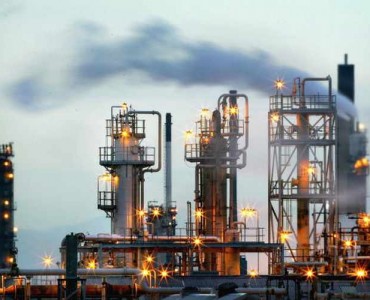A deal to freeze oil output by OPEC and non-OPEC producers fell apart on April 17th after Saudi Arabia demanded that Iran join in despite calls on Riyadh to save the agreement and help prop up crude prices, Reuters reported.
Some 18 oil nations, including non-OPEC Russia, gathered in the Qatari capital of Doha for what was expected to be the rubber-stamping of a deal to stabilize output at January levels until October 2016.
The development will revive oil industry fears that major producers are embarking again on a battle for market share, especially after Riyadh threatened to raise output steeply if no freeze deal were reached.
Iran has been pledging to ramp up production in the post-sanctions period, making a compromise with Riyadh almost impossible as the two fight proxy wars in Yemen and Syria.
After five hours of fierce debate between Saudi Arabia and Russia, delegates and ministers announced no deal had been reached. Russian Oil Minister, Alexander Novak, called the Saudi demand “unreasonable” and added that Moscow would not restrain output for now.
“We concluded we all need time to consult further,” Qatar’s Energy Minister, Mohammed al-Sada, said. Several OPEC sources said if Iran agreed to join the freeze at the next OPEC meeting on June 2nd, talks with non-OPEC producers could resume.
The failure likely means that oil prices will drop again, wrote AP citing analysts. “Prices will trade lower. Maybe sharply lower,” said Robert Yawger, Director of Energy Futures at Mizuho Securities USA. He also noted that other factors were negatively impacting prices: US crude oil storage remaining at all-time highs, Iran increasing production, and Libya looming on the horizon to boost output.
Economists at the French bank, Société Générale, were quoted by The Guardian as saying: “When it comes to oil, the principle of Goldilocks applies in full. Too low a price raises fear of a vicious circle of default, spillover to bank balance sheets, eroding financial conditions and a new headwind for the real economy.” They noted that a recent report by the International Energy Agency warned that a mere production freeze would have a limited effect on physical oil supply.
The Financial Post quoted an expert saying: “Given the expectations ahead of Doha, the failure to reach a freeze agreement is likely to cause an oil market selloff,” said Jason Bordoff, Director of the Center on Global Energy Policy at Columbia University. “The fact that Saudi Arabia seems to have blocked the deal is an indicator of how much its oil policy is being driven by the ongoing geopolitical conflict with Iran.”
Oil prices rose by 5% in the week ahead of the meeting in anticipation of some action to freeze production. Brent crude oil is currently trading at $43.10 per barrel, up from a low of $29 in January but still well below the price of $110 which was typical in the first half of 2014.
The Telegraph added that demand for oil shows no sign of perking up, meaning the oil producers are not likely to be bailed out by enthusiastic customers. In addition, the market is growing more slowly in 2016 than in recent years, meaning spare capacity will not be used up quickly. Analysts at the International Energy Agency estimated that by the end of 2016 oil demand will have grown by 1.2mb/d, which is one-third slower than the growth of 1.8m per day week in 2015.












